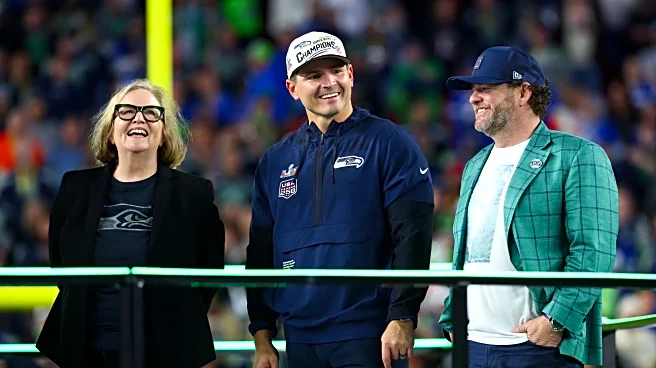What's Happening?
The luxury fashion industry is undergoing significant changes as it faces a downturn in consumer demand and seeks to revitalize interest through creative revamps. An unprecedented number of fashion houses, including Chanel, Gucci, and Balenciaga, are unveiling debut collections by new creative directors. This move is part of a broader strategy to address the industry's malaise, characterized by lackluster designs and high price points. The 'Great Fashion Reset' initiative aims to explore the challenges facing the industry and the necessary 'reset' to regain momentum. Key issues include the impact of 'Made in Italy' sweatshop scandals on brand trust and the need for recalibrating marketing strategies in the post-internet 'attention economy'.
Why It's Important?
The luxury fashion industry's efforts to revamp creative direction are crucial in addressing declining consumer interest and sales. These changes could redefine brand identities and influence market dynamics, potentially leading to increased competition and innovation. However, the industry's challenges are multifaceted, including ethical concerns and economic pressures. The success of these revamps depends on effectively translating creative visions into compelling marketing narratives and products. The industry's ability to navigate these challenges will impact its long-term sustainability and reputation, influencing consumer trust and engagement.
Beyond the Headlines
The ethical implications of sweatshop scandals and the industry's high profit margins raise questions about the true value proposition of luxury fashion. Addressing these issues requires structural changes to ensure quality, craft, and value, which are central to luxury's promise. Additionally, the industry's reliance on 'always on' marketing strategies may need reevaluation to maintain brand exclusivity and differentiation. The focus on emerging markets, such as the wealthy Gulf states, highlights potential growth opportunities amid global economic uncertainties.












